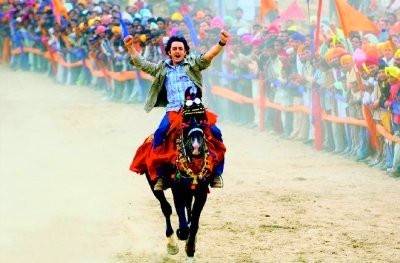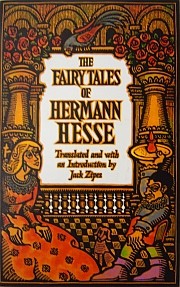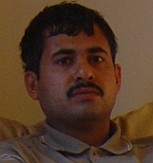Rang De Basanti
I watched the new Hindi film Rang De Basanti yesterday. This film is directed by Rakyesh Mehra.
Sue (Alice Patten) is a film student from Britain who wants to make a documentary film on Bhagat Singh, Chandrashekhar Azad and other Indian revolutionary freedom fighters, inspired by an old diary of her grandfather who had been an officer in the British Army. She comes to India to make the film, and after conducting few screen tests (reminded me of the Indian Idol program coming on Sony channel) to find suitable actors, she settles with few students in the Delhi University, who she feels would be able to do justice to the roles. However, the students (played by Aamir Khan, Siddharth, Sharman Joshi and Kunal Kapoor) have absolutely no empathy towards the story of freedom fighters or the struggle for Independence, and their intention is just to have some fun during the filmmaking. A young frustrated political leader (played by Atul Kulkarni) soon joins them to play the role of Ram Prasad Bismil.
When Ajay Rathod (Madhavan), a friend of these students and a pilot with Indian Air Force dies in an aircraft crash, the story takes a turn. The students find the defense minister responsible for the death of their friend, for keeping the old aircrafts with technical glitches in the force, risking lives of the pilots. The students are shocked by the insensitivity of the government towards the issue, as the ministry is trying to twist the tale and attribute the accident to the pilot's error. Feeling inspired by Bhagat Singh's tale which they have been acting in, the youngsters see the ministers in the place of British officers. The rest of the story shows how the five-some "avenge" their friend's death, vaguely reminding of films like Chanakyan, Anniyan and 4 The People.

Rang De Basanti is a film worth watching, for multiple reasons. It is a well-made and well-packaged film, with brilliant photography and editing, and good music by AR Rehman. The performances by the five actors are natural and the development of comradeship between the students is portrayed in a nice way, with not much of Bollywoodish melodrama. Rakyesh Mehra's narration style seems to be inspired from the "Indian English films" by Nagesh Kukunoor et al, but is still fresh and interesting, and it was good to see him interweaving scenes from freedom struggle in sepia colors along with the present-day scenes, drawing parallels between them at various places. The climax scenes made me wonder whether it was so simple to do all what the students did, and the actor who played the role of the officer in All India Radio irritated me. However, there is a touch of difference in handling all scenes, like freezing the visuals on the smiling faces of Aamir Khan and Siddharth in the climax, while allowing the audio track to continue.
If compared with average Hindi cinema, Rang De Basanti stands far above, and makes an interesting watch.
Sue (Alice Patten) is a film student from Britain who wants to make a documentary film on Bhagat Singh, Chandrashekhar Azad and other Indian revolutionary freedom fighters, inspired by an old diary of her grandfather who had been an officer in the British Army. She comes to India to make the film, and after conducting few screen tests (reminded me of the Indian Idol program coming on Sony channel) to find suitable actors, she settles with few students in the Delhi University, who she feels would be able to do justice to the roles. However, the students (played by Aamir Khan, Siddharth, Sharman Joshi and Kunal Kapoor) have absolutely no empathy towards the story of freedom fighters or the struggle for Independence, and their intention is just to have some fun during the filmmaking. A young frustrated political leader (played by Atul Kulkarni) soon joins them to play the role of Ram Prasad Bismil.
When Ajay Rathod (Madhavan), a friend of these students and a pilot with Indian Air Force dies in an aircraft crash, the story takes a turn. The students find the defense minister responsible for the death of their friend, for keeping the old aircrafts with technical glitches in the force, risking lives of the pilots. The students are shocked by the insensitivity of the government towards the issue, as the ministry is trying to twist the tale and attribute the accident to the pilot's error. Feeling inspired by Bhagat Singh's tale which they have been acting in, the youngsters see the ministers in the place of British officers. The rest of the story shows how the five-some "avenge" their friend's death, vaguely reminding of films like Chanakyan, Anniyan and 4 The People.

Rang De Basanti is a film worth watching, for multiple reasons. It is a well-made and well-packaged film, with brilliant photography and editing, and good music by AR Rehman. The performances by the five actors are natural and the development of comradeship between the students is portrayed in a nice way, with not much of Bollywoodish melodrama. Rakyesh Mehra's narration style seems to be inspired from the "Indian English films" by Nagesh Kukunoor et al, but is still fresh and interesting, and it was good to see him interweaving scenes from freedom struggle in sepia colors along with the present-day scenes, drawing parallels between them at various places. The climax scenes made me wonder whether it was so simple to do all what the students did, and the actor who played the role of the officer in All India Radio irritated me. However, there is a touch of difference in handling all scenes, like freezing the visuals on the smiling faces of Aamir Khan and Siddharth in the climax, while allowing the audio track to continue.
If compared with average Hindi cinema, Rang De Basanti stands far above, and makes an interesting watch.
 Hermann Hesse's Siddhartha is one of my favorite books. I have Steppenwolf and Narcissus und Goldmund with me, but somehow I couldn’t read them yet. Recently I read stories from the book The Fairy Tales of Hermann Hesse, translated by Jack Zipes. If the author of Siddhartha has written fairy tales, then definitely they wont be ordinary ones. There are 22 stories in this collection - Many of them have a plain but beautiful narration style resembling fairy tales, and give Hesse's views regarding spirituality, social life and human character.
Hermann Hesse's Siddhartha is one of my favorite books. I have Steppenwolf and Narcissus und Goldmund with me, but somehow I couldn’t read them yet. Recently I read stories from the book The Fairy Tales of Hermann Hesse, translated by Jack Zipes. If the author of Siddhartha has written fairy tales, then definitely they wont be ordinary ones. There are 22 stories in this collection - Many of them have a plain but beautiful narration style resembling fairy tales, and give Hesse's views regarding spirituality, social life and human character. 
